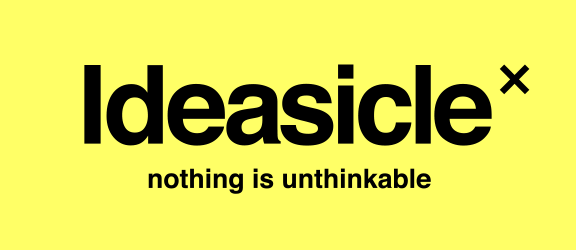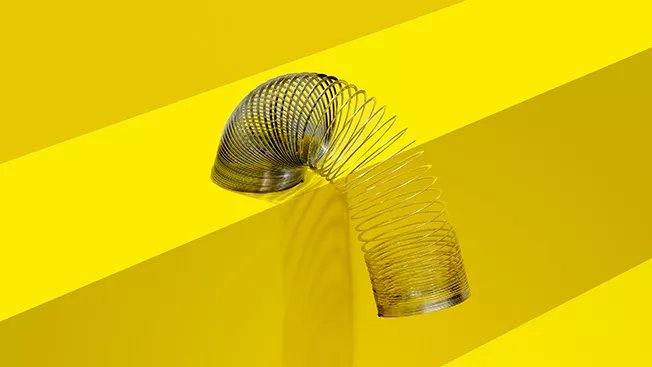Alan Watts was an English philosopher, writer, and speaker, focusing on popularizing Japanese, Chinese and Indian traditions of Buddhist, Taoist, and Hindu philosophies for a Western audience. I stumbled upon him years ago while killing time on YouTube and was blown away. I highly recommend any of his lectures. But one point he made in one lecture has always stuck with me and just today I realized why: it explains the importance of human creativity.
Read MoreWe like to think ideas are in our control. That we can sit down, think, and boom, an idea will happen. And that may happen for some, sometimes. But more often than not an idea hits you when you least expect it. In the shower, while gardening, or even by accident. I was curious about accidental ideas and did a little research. What follows are several great examples of these accidents and then ways we might be able to encourage happy accidents to occur.
Read MoreLook at the problems you face, look at the components of those problems, and ask yourself, “I see what this component is, but what could it be?” The more we can train ourselves to realize nothing is as it seems, the more likely we are to see beyond the narrow definitions that surround us, and the more likely we are to see all that things that could be.
Read MoreHave you ever found yourself stuck in a creative rut when you're jamming like hell on a particular idea project, unable to generate new ideas? According to a recent study by Jackson G. Lu, Modupe Akinola, and Malia Mason at Columbia Business School, switching back and forth from one creative task to another can actually increase creativity by reducing a thing called “cognitive fixation.”
Read MoreTurns out the most potent motivation techniques do not involve money or bonuses or better coffee (extrinsic motivation), but involve getting validation, recognition, and praise (intrinsic motivation). It occurred to me that virtual idea generation, because you can invite employees to an idea project, has a tangential benefit of providing employees many, if not all, of these intrinsic motivations.
Read MoreWe’ve been playing around with ChatGPT now for a few weeks. And while many sages in the advertising industry are poo-pooing it for not being innovative or bringing truly original creativity, I think they are missing a powerful and useful application of this technology. And one we plan to use at Ideasicle X.
Read MoreIntuitively I have always thought that creativity is a spiritual act. I mean, what is “God” to most people but the ultimate “creator,” right? But I’ve never been able to put my finger on why I feel that creativity is spiritual. So I asked the AI engine ChatGPT and its answer gave me a very interesting insight. Below is the prompt I used, the ChatGPT response, and then my reaction to it. Hope it inspires you a little.
Read MoreEvery Ideasicle Expert has agency over themselves. Beyond their individual genius, their agency over themselves pays powerful dividends when it comes to virtual idea generation. Here’s why.
Read MoreI regularly check the science boards and university press releases for new studies on creativity. Specifically, studies that show us some small or big way to increase our own creativity. In compiling ten years worth of such studies on our Scientific Studies page, I noticed a pattern across many, if not all of those studies. That is, reducing our ability to focus on the physical 3D world increases our creativity. These studies appear quite different on the surface—the creative effects of sound, light, certain activities like walking, etc.—but I believe they are just different ways we can get out of this world in order to be more creative.
Read MoreCould artificial intelligence further improve the virtual model we’ve already created with Ideasicle X? To explore what’s possible I’ve had several conversations with companies who specialize in AI. What follows are simple applications of AI we came up with, progressing from the basic wow to the less expected holy moly.
Read MoreOkay, this study is almost embarrassing to humanity, but is super useful in our collective struggle against fear and doubt. It's from Lior Noy and Liron Rozenkrantz at the Weizmann Institute of Science in Israel and it suggests that the placebo effect not only works for physical ailments, but as a way to increase our creativity. This study reveals the subtle and frail nature of creativity, but also reveals how we can overcome our own insecurities.
Read MoreBy now anyone who’s got even a faint interest in the Beatles has seen Peter Jackson’s incredible documentary, “Get Back.” Being a bit of a Beatles nut, I’ve now seen it five times and I notice something different in it every time. But there’s an important theme in the narrative that is instructive for creative teamwork—in teams of four. When Paul tries to tell his three bandmates what to do, what to play, what to sing, he suffocates the group dynamic that made the Beatles the Beatles.
Read MoreCreativity can’t be forced. In fact, sometimes the harder you try the more ideas seem to allude you. I heard a story that John Lennon badly wanted to write a song for his new son, Sean. He tried and tried but couldn’t come up with anything he liked. John Lennon! So he gave up. And of course no sooner did he give up than the song “Beautiful Boy” came to him. Creativity isn’t linear or predictable. Its magic is clumsy. But if we know that going in we can increase the odds of ideas.
Read MoreTwitter is a minefield of flame throwers, harsh criticism, and downright bullying. People say things on Twitter (or other social media) they would never say to someone’s face. What is it about “virtualness” that brings out the worst in us? Especially because my experience is that the virtual nature of Ideasicle X is really good for creativity. But after reading Professor of Psychology at Rider University, John Suler's, The Psychology of Cyberspace, I believe both the vitriol of Twitter and the magic of virtual idea generation are caused by precisely the same thing. A little thing called “online disinhibition.”
Read MoreI’ve presented thousands of ideas in hundreds of presentations over the last 12 years with Ideasicle. Sometimes I leave the presentation excited and motivated to do more, other times I want to smash all my Beatles records. You could say I have pretty thick skin at this point. So today I’m going to reflect on how I think clients can review other people’s ideas without inadvertently ruining everything.
Read MoreIt’s one thing to come up with an idea. Doing so requires hard work, perseverance, and an open mind. But it’s quite another to recognize an idea as great. In fact, I’d argue recognizing a great idea is as important a skill as coming up with the idea in the first place. So I asked a few of my well-oiled advertising friends to chime in and tell me how THEY know an idea is great.
Read MoreBeen pitching Ideasicle X to agencies constantly lately. I can’t tell you how many agencies have the following reaction to the platform: “It’s so refreshing that you’re forcing the team to focus on the big idea and not on the execution.” Apparently agency teams get too executional with their ideas too quickly instead of getting the idea right first. Having been in the virtual-idea business for ten years, I thought it was obvious that you needed a big idea first AND THEN execute it. But I guess not. And I have some thoughts as to why this may be happening.
Read More…After studying another powerful force, creativity, and how/when inspiration strikes, I think differently about Tarot cards. Not that I don’t think they work, they definitely do. But I’ve rethought why they work. It’s less that the cards retain some mystical, magical force and more that we are paying attention and actively looking for connections.
Read MoreWe started a TikTok Channel with short videos on each finding. We call them “Creativity Tips” and so far we have one about how walking increases creativity, another on how the placebo effect works for creativity, and yet another one on the positive effects of moderate amounts of alcohol. But we’re only just beginning. We invite you to subscribe to our channel below and start using science to improve your own creativity.
Read MoreWe all know by now that the advertising industry has responded incredibly well to virtual, remote work. The day-to-day with clients is getting done, work is getting produced, and in many cases relationships with clients are improving. But one feature of the Zoomification of advertising I was curious about was perhaps the most important one. How has Zoom (and the like) affected agencies’ ability to sell creative work? So yesterday I posted a poll to my LinkedIn contacts, most of whom are in the advertising business and got some interesting answers that come with implications.
Read More





















